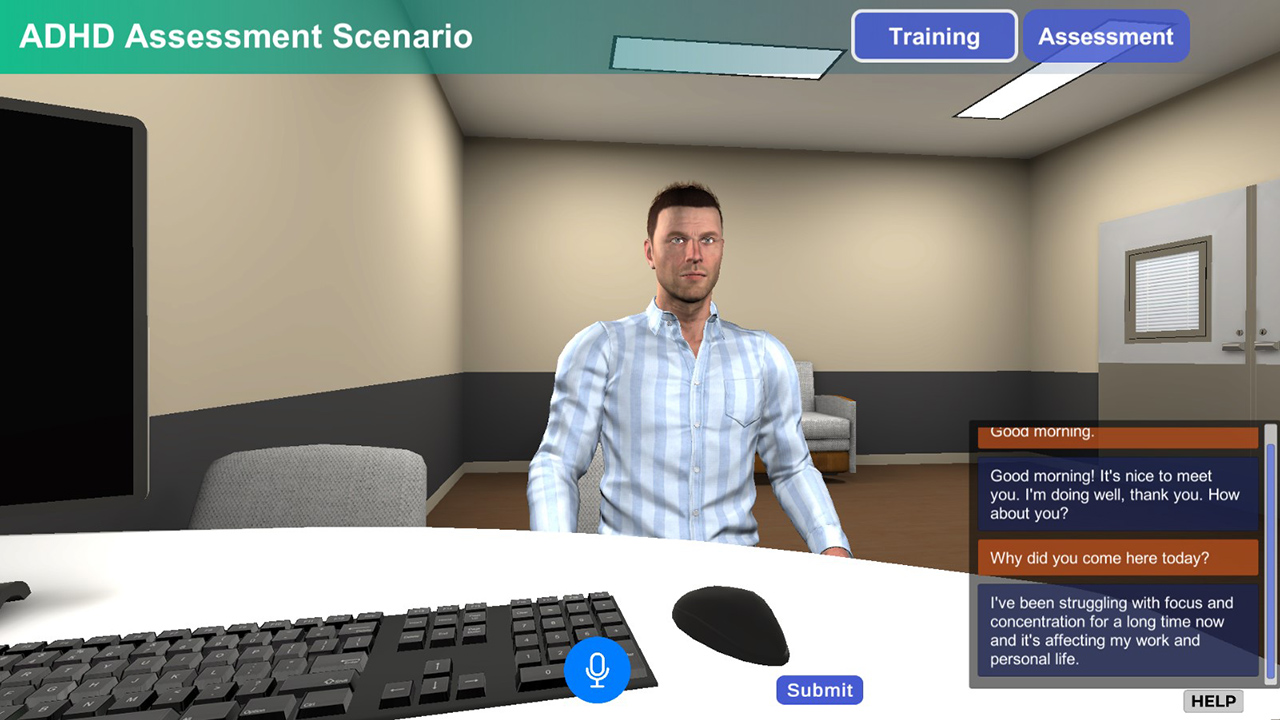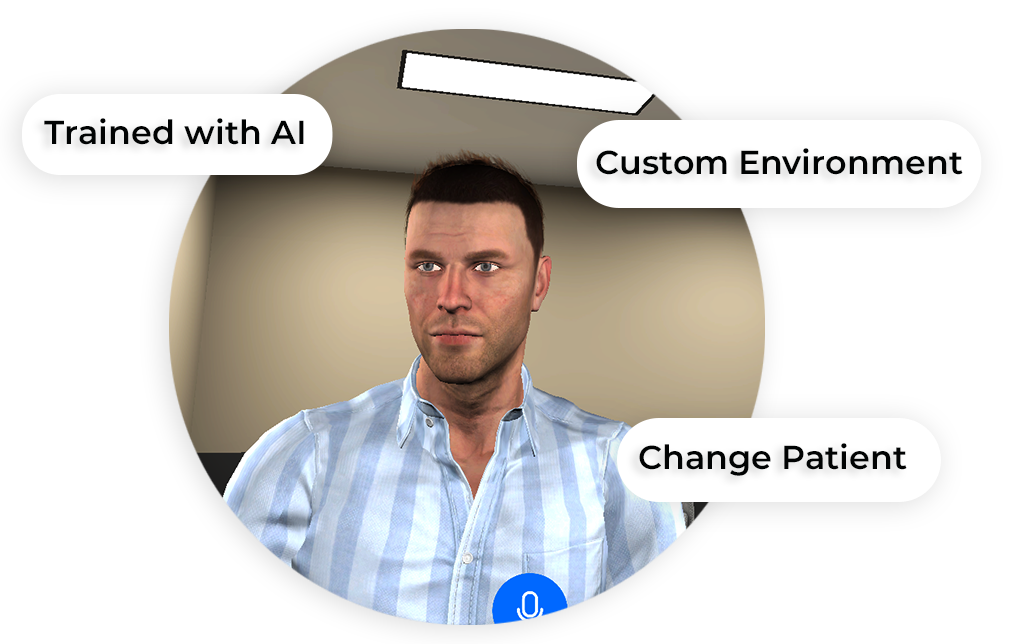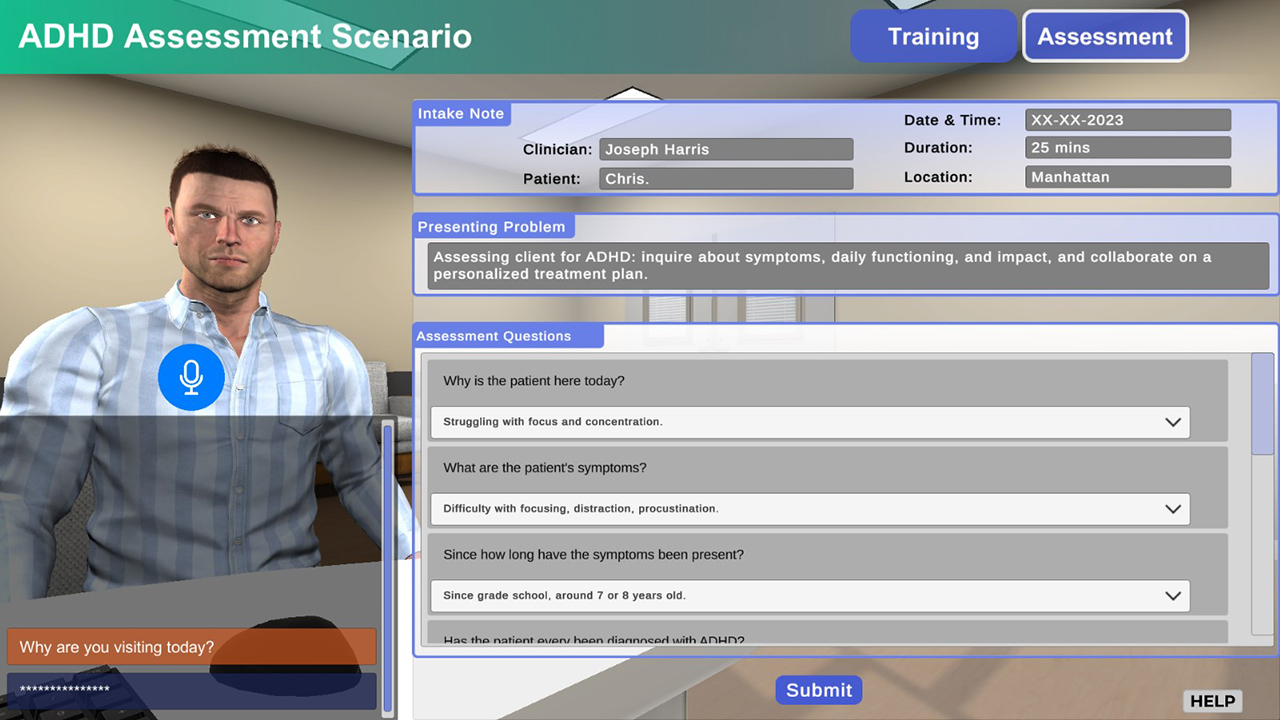ADHD Assessment
Available in VR and web browser
This ADHD assessment tool is designed to help learners practice their patient assessment skills.
Employing end-to-end AI and technologies like large language model (LLM) and deep learning, these virtual ‘clients’ possess the ability to respond like real humans. Learners can conduct a completely organic conversation with the client, asking them about their symptoms and problems faced. Based on the client’s responses, a line of diagnosis can be established, and treatment plan formulated.
The MedVR Ed XR Platform provides trainers and instructors the facility to review conversation logs and analyze learner performance based on customized rubrics. Based on the performance review, trainers will be able to provide precise and effective feedback.
- Conduct an accurate diagnosis
- Input data in an EHR
- Prepare an enhanced treatment planning
- Inform and increase awareness of comorbidities
- Gain improved professional competence

- Barkley, R. A. (2006). Attention-deficit hyperactivity disorder: A handbook for diagnosis and treatment (3rd ed.). New York, NY: The Guilford Press.
- National Institute of Mental Health. (2019). Attention deficit hyperactivity disorder. Retrieved from https://www.nimh.nih.gov/health/ topics/attention-deficit-hyperactivity-disorder-adhd/index.shtml
- Centers for Disease Control and Prevention. (2022). Data & Statistics on ADHD. Retrieved from https://www.cdc.gov/ncbddd/adhd/ data.html
Customize Your Case
Build your own AI-Humans patient
MedVR Education is bringing to you a no-code authoring platform to create new patient cases and customized patient history. Put together your own cases by making selections from a wide range of customizing features.
- Create with web-based authoring tool
- Publish in VR, desktop, and mobile devices
- Train your virtual patient by yourself
- Select patient from a diverse background
- Choose preferred virtual environment
- Perform real-time testing
- Track and train new data

 AI Patient Assessment
AI Patient Assessment Natural Language Processing
Natural Language Processing
Case History

ADHD Patient Assessment
This is the case of thirty-one-year-old Chris who has been facing difficulty focusing on tasks. He is easily distracted and cannot keep himself organized. He realizes that these symptoms have existed for quite some years but now they are getting worse. Chris suspects he suffers from attentions deficit hyperactivity disorder. Your task, as a healthcare professional, is to perform an ADHD assessment by asking him questions related to his symptoms and clinical history. This virtual patient is AI-enabled and capable of providing intelligible responses to questions.

